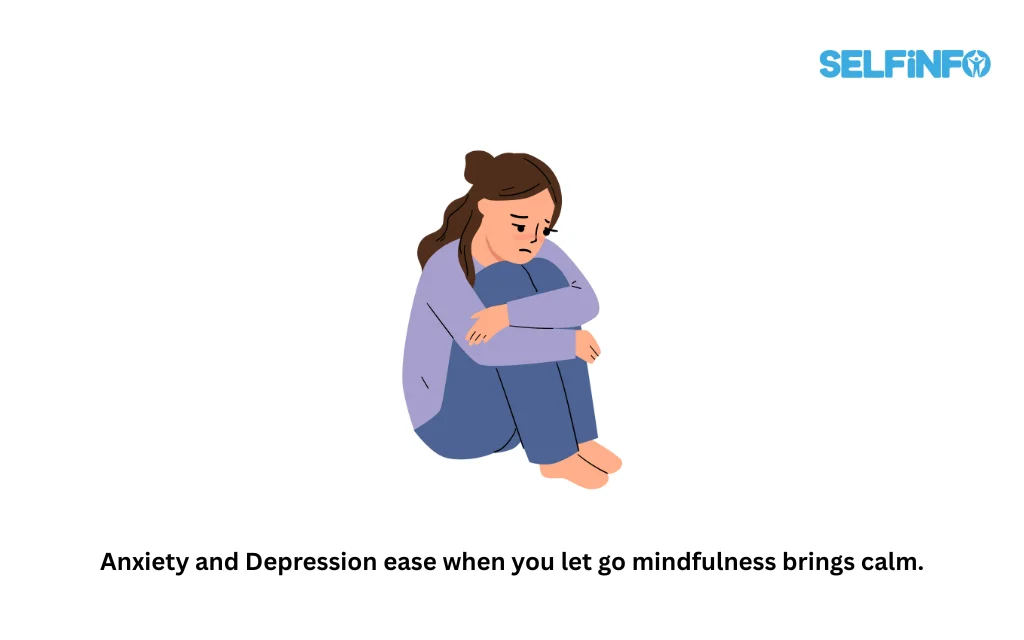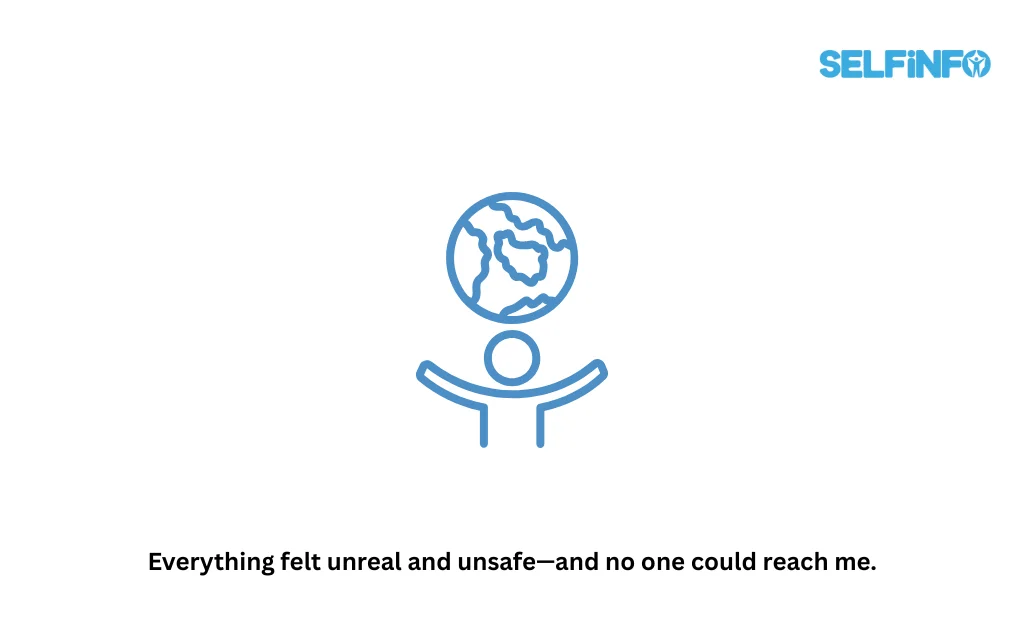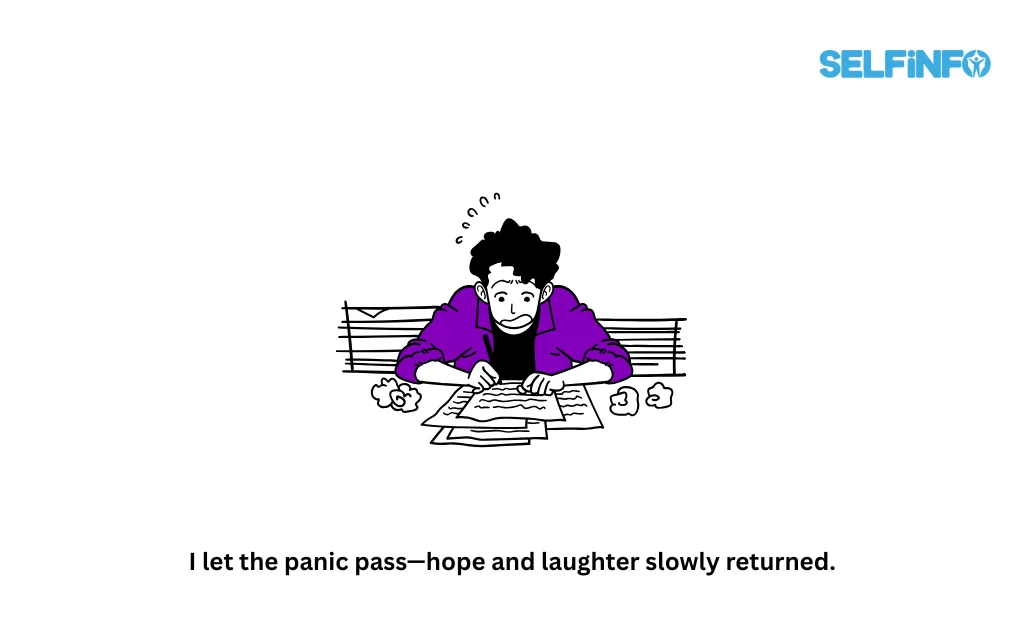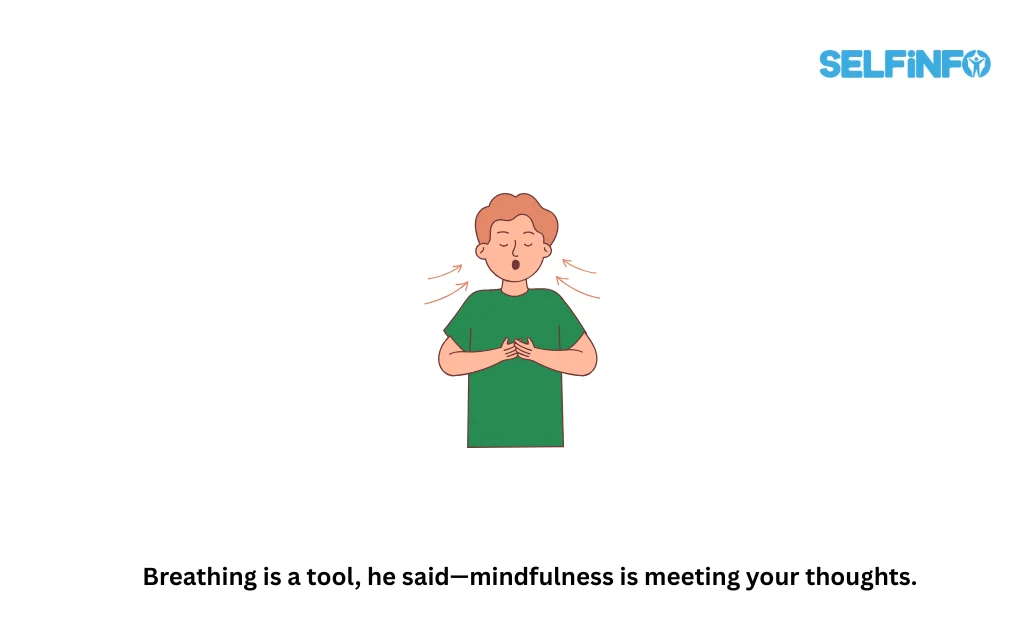Anxiety and Depression led me to discover a way out when I was twelve years old.
I was meant to be getting ready for choir practice, which is an eight-hour rehearsal before a major concert, on a gloomy Saturday morning. Eight hours! I started to get fixated on how much time this was in my little life at the moment.
A heavy feeling of nausea and fear came over me as if on my own initiative. My brain had told my body, “Hey, if you feel sick, we can get out of this!” although I was not conscious of it at the moment.
Regretfully, this would occur numerous times during my adult life.
Commitment is equivalent to feeling sick and having a tremendous fear of throwing up. Any circumstance that could be uncomfortable to leave, such as athletic events, concerts, or sleepovers at friends’ homes.
It did not start to interfere with school until I was sixteen. I was sent to the doctor because I was too immobilized to attend the first day of year eleven. I was nervous, she said. She recommended the antidepressant Effexor. I was not feeling down. For the following eight years, I would take one tablet daily.

“I do not think those medications are genuinely treating what you think they are treating,” a friend said at twenty-four. Perhaps you could live without them.
At that moment, I understood that I had been eating them just by habit. Perhaps they had served as my crutch, a morning ritual to ward off the wolves. I was not actually having many of the attacks by that point. I was feeling fine. While traveling abroad, I began to gradually wean myself off the drug.
Despite the terrible withdrawal symptoms, I managed to get through them, somewhat dizzy and disoriented but “clean.”
I went back home. I was initially content and reassured by my family and pets’ familiarity. However, something was a little strange. I began to think odd things, unsettling and negative.
Such moods are usually dismissed, but they arrived with such conviction that I started to worry. “Why do not I want to do anything anymore?” I Googled. and “Why am I feeling disengaged?”
I had what may be described as a nervous breakdown a month later. Something struck me as I lay in bed watching a movie: “Life has no purpose.”
It was followed by a terrible rush of panic and racing thoughts. For months, my mind would be stuck in cycles of worrying ruminating, with little to no break other than when I slept.
Everything appeared strange, meaningless, and dangerous. Worst of all, it seemed that no one could get in touch with me, no matter how hard they tried.
Nerves you have before a performance are not the same as anxiety. It is not the heart palpitating when you remember that you left the stove running at home. Anyone who tells someone who is depressed or anxious to “just relax!” should be aware that they simply cannot. At least not yet.
Both are driven by anxiety. Not just about these unfamiliar and confusing feelings, but also about the question, “Will I always be this way?”
It was a waste of time when I attempted CBT. She appeared more preoccupied with the little clock on her table than with my frustrated tears, so perhaps I was looking for the wrong psychologist.
Antidepressants were prescribed to me once more, but even at the most difficult times, a small voice inside of me said, “No medicines.” Simply wait. Please.”
Another psychologist I encountered was a nice man from Romania who could understand me. I spent three hundred dollars on pointless vitamins. experimenting.
Anxiety is deceptive. It lets you know that all of your emotions are real. Everything is depicted in black and white during a depression. When combined, they distort perceptions.

I was convinced one day that I was getting schizophrenia. I looked up “disturbing ideas” on Google. This time, I came found the website Anxiety No More, which was made by Paul David, a former sufferer.
It encapsulated all of my symptoms, including racing and unsettling thoughts, lightheadedness, panic, feelings of depression and detachment, and a host of other symptoms. Paul had been anxious, but he had survived fully unharmed. The solution? No costly smoke-cleaning procedures or medicines.
Stop fighting it was the answer, and it was so lovely and almost incredible in its simplicity. Give it a chance.
This was my first real breakthrough, and I was driven to study everything I could about the human brain and the causes of anxiety and depression.
I discovered that the likelihood of depression is ten times higher for people born after 1940. This suggested that life events—the stress we experience, assuming we are unbreakable—are frequently to blame. To understand how we even overburden ourselves, all you have to do is watch someone attempt to balance an iPad, a laptop, and two iPhones on one knee.
It turns out that our brains have not gotten the message that lions are no longer hiding behind bushes, and fear is a slow-to-evolve quality that we inherited from our prehistoric ancestors.
Depression, too? The brain is frequently stating, “I can only tolerate so much! “Bye!” and emotions appear to be turned off—a protective mechanism.
This is not meant to minimize cases of severe depression brought on by other circumstances that necessitate medication, but given how often and readily antidepressants are taken, one must wonder how much they actually cost.
Is it possible that we are disrupting a natural defense mechanism that would be better treated patiently rather than with a “fighting” mentality?
Every book had been read by me. Every day, I practiced breathing techniques and listened to calming music as I meditated.
I let the panic attacks to come and go, and eventually they subsided to the point that I no longer expected them. Emotions returned. I could chuckle. Despite my weariness and bruises, I felt hopeful.

However, the gloomy ideas would continue to creep in and gradually grow in my head. As heavy as damp wool. I was depressed despite my best efforts, and I really wanted to avoid it.
Though my thoughts were less urgent, they were still present, and I continued to be in a haze, as if I were only a hair’s breadth from reality.
I looked it up on Google. I was guided to practice mindfulness.
The last stage on my road to recovery is mindfulness.
I came to the practice of mindfulness because of my intuition. Medication and cognitive behavioral therapy always felt weird to me. Even utilizing distraction strategies, burning lavender candles, and chanting affirmations seemed ineffective—as if I were telling myself, “This is something that needs to be disposed of!”
It is the exact opposite of “Do not think about pink elephants!” We will, of course. We are naturally inclined to do so.
The big epiphany occurred when I was listening to a podcast by mindfulness expert and Skype psychotherapist Peter Strong about mindfulness and secular Buddhism. My personal experience as a young adult with anxiety and sadness was similar to his.
Encouraged by what I had read and eager to learn more about mindfulness, I set up a Skype meeting with Peter.
I told him that I thought breathing techniques were an attempt to divert attention. “Yes,” he said. It is a tool. The intricacies are the key to mindfulness. “Instead, when ideas and sensations occur, you just speak to them,'” he said after pausing.

My mental fight was nearing to an end after nearly two years of battling it. I opened my mind to the ideas. I allowed them to remain. I handled them like I would a little injured bird. Compassionately.
The negative taboo that surrounded them vanished as promised. There was no more rumination. At last, I felt liberated.
I sincerely hope that no one has to endure senseless suffering like I and countless others have. It took me nearly two years to tell my experience, which was one of trial and error.
I believe that my journey could have been a little easier if I had learned about mindfulness sooner. Believe me when I say that I believed I would spend the rest of my life stuck in that situation. However, I followed the suggestion to wait it out, exercise patience, and not take anything that was going on in my head too seriously. It requires time. You do heal, although relapses do occur.
Embrace the ambiguity, be vulnerable with those who matter to you, and make an effort to let chaos coexist with your identity. And trust me when I say that, no matter how bleak things seem, you are still there, waiting, however momentarily obscured.
